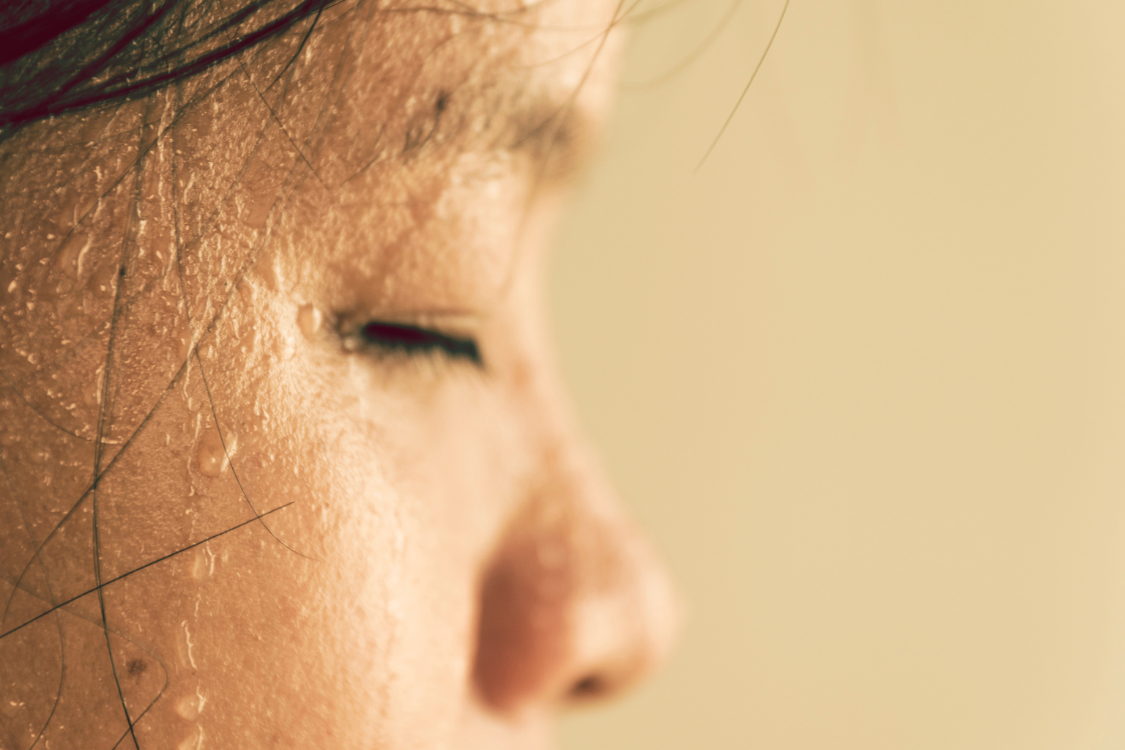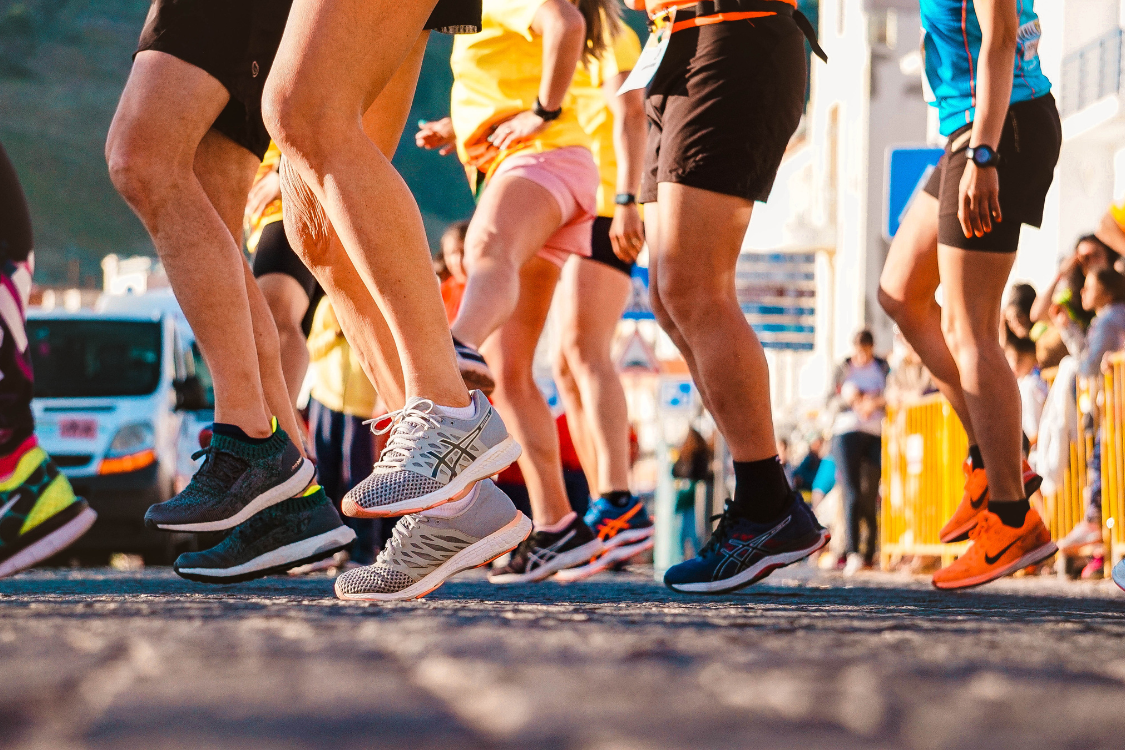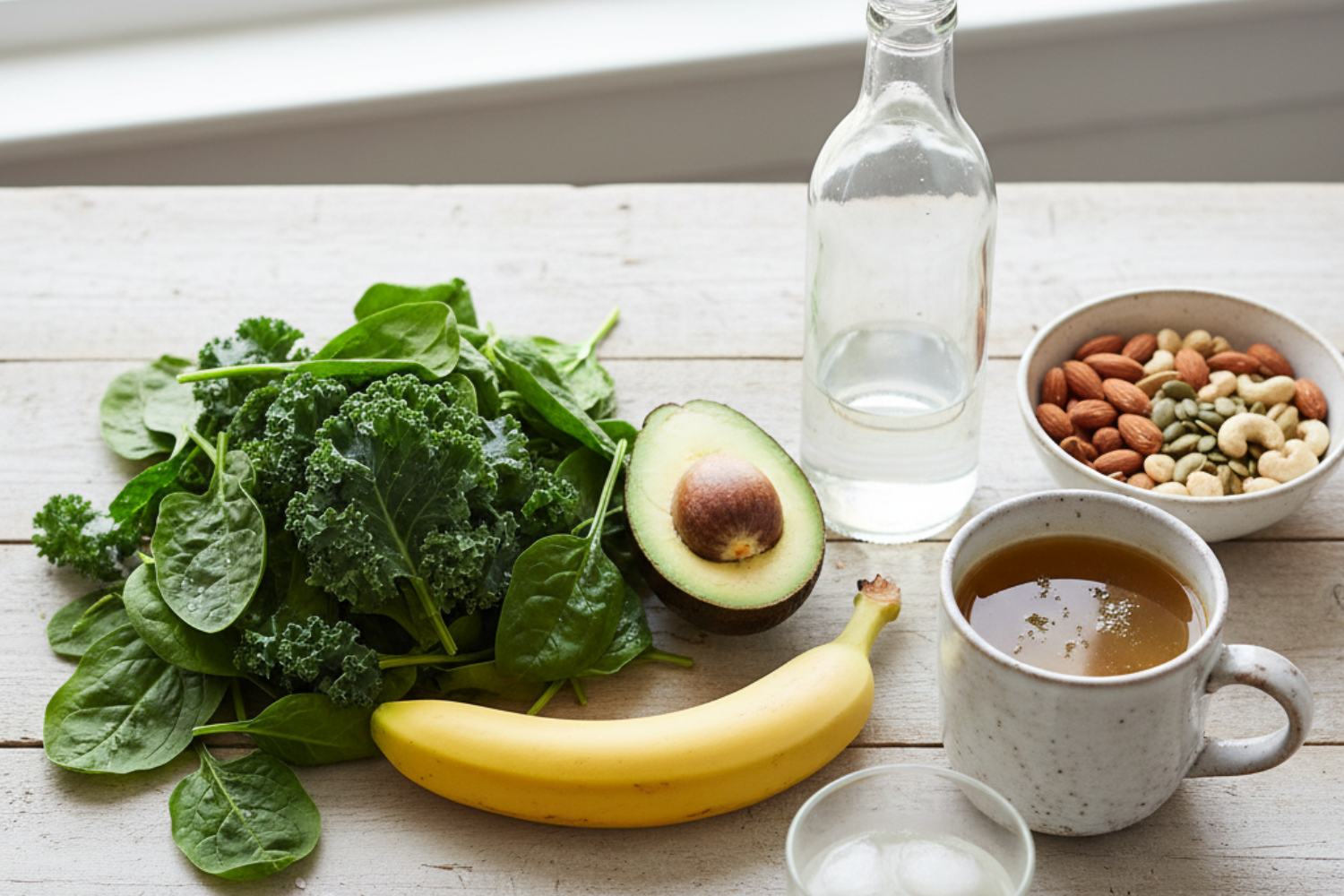Sometimes the body gives subtle clues before you feel completely run down. Feeling tired, light-headed, or craving salty foods can all be early signs that you need electrolytes. These essential minerals, including sodium, potassium, calcium, and magnesium, help maintain fluid balance and support normal muscle contractions and nerve signaling.
When electrolyte levels fall outside their normal range, it can influence hydration, blood pressure, and how efficiently your body regulates fluids. Everyday habits such as excessive sweating, intense workouts, or eating too little produce may contribute to an electrolyte imbalance.
Recognizing these small shifts can help you stay hydrated and maintain electrolyte balance, supporting steady energy and overall well-being.
What Are Electrolytes and Why Are They Important?
Electrolytes are minerals that carry a mild electrical charge, helping your body manage several vital functions. The main ones—sodium, potassium, magnesium, calcium, and chloride—play a role in maintaining fluid balance, enabling muscle and nerve function, and supporting a healthy pH balance.
They also assist in moving nutrients and waste through the digestive tract and help regulate blood pressure within normal limits. A shortage or excess of certain electrolytes can disrupt how your body’s cells communicate and function.
When the body loses electrolytes through sweat, urine, or illness, it’s important to replace electrolytes through food, fluids, or balanced supplements to help sustain normal electrolyte levels and proper hydration.

What Are the Most Common Signs You Need Electrolytes?
Even mild changes in electrolyte levels can affect how you feel. Since these minerals influence hydration and energy balance, an imbalance can sometimes appear as physical discomfort or fatigue.
Muscle Cramps and Spasms
Tight or twitching muscles may suggest that your electrolyte stores are running low. Magnesium and potassium help support muscle function, allowing muscles to contract and relax efficiently. Muscle cramps may appear after an intense workout, during hot weather, or when sodium-potassium balance shifts due to excessive sweating.
Fatigue and Low Energy
Feeling tired or sluggish may coincide with low electrolyte levels. Inadequate sodium or potassium can make it harder for the body to sustain fluid balance, which may affect how cells produce energy. Rehydrating and including electrolyte-rich foods may help maintain fluid balance and everyday energy.
Headaches or Feeling Lightheaded
A sudden change in fluid balance can sometimes cause lightheadedness. When the body loses water and minerals through sweat or exertion, blood pressure can dip temporarily. Replacing fluids and minerals may help maintain hydration and electrolyte balance after activity.
Excessive Thirst or Dry Mouth
Strong thirst or a dry mouth may signal that the body needs more than just water. Because electrolytes help regulate hydration, both fluids and minerals must be replaced when fluid loss occurs through sweating or frequent urination.
Dizziness or Brain Fog
Electrolytes like sodium and calcium are involved in nerve function. If their levels shift, it may briefly affect clarity or concentration. A combination of hydration and balanced nutrition often helps restore the body’s electrical charge needed for clear thinking and focus.
Irregular Heartbeat or Palpitations
Electrolytes play an essential role in maintaining the heart’s normal rhythm. The movement of sodium (Na⁺), calcium (Ca²⁺), and potassium (K⁺) across cell membranes helps regulate the electrical impulses that coordinate heartbeats. When these electrolyte levels become too high or too low, they can disturb this electrical balance, which may lead to irregular heart rhythms or palpitations. Because these changes can have many causes, anyone experiencing ongoing or severe palpitations should seek medical advice for proper evaluation (Nishimura, Nakayama, & Ishikawa, 1996).
Dark Urine or Signs of Dehydration
Dark yellow urine is associated with higher urine osmolality, a marker of concentration, and lighter urine is associated with better hydration status. These relationships were measured objectively using Commission Internationale de l’Éclairage Lightness, Green–Red, Blue–Yellow color space analysis (Belasco et al., 2020).

What Causes Low Electrolytes?
Here are the most common reasons your body can lose electrolytes faster than it replaces them.
-
Heavy sweating from physical activity or hot weather, which reduces sodium, potassium, and chloride.
-
Not drinking enough fluids, leading to ongoing fluid loss and low electrolytes.
-
Eating fewer fruits and vegetables or skipping meals, which limits mineral intake.
-
Low-sodium diets without careful planning, which may lower sodium too much for your needs.
-
Certain medications that increase fluid loss or change mineral levels.
-
Liver disease that alters fluid handling in the body.
-
Kidney disease that affects how the body filters and retains minerals.
-
Minor illnesses that cause vomiting, diarrhea, or fever, increasing fluid loss.
Drinking adequate water and following a well-balanced diet help support electrolyte balance day to day.
How to Replenish Electrolytes Naturally
Supporting electrolyte balance doesn’t require sugary sports drinks. The most sustainable approach combines nutrient-dense foods, proper hydration, and clean formulations designed to help maintain fluid balance.
Foods Rich in Electrolytes
Whole foods naturally provide the essential minerals needed for maintaining electrolyte balance. Bananas, avocados, leafy greens, nuts, seeds, and dairy supply potassium, magnesium, and calcium. A light touch of table salt can help sustain sodium intake for people who lose salt through sweat, and anyone with blood pressure concerns should follow personal medical guidance.
Drinks With Electrolytes
Coconut water, milk, and fruit smoothies contain naturally rich sources of minerals that assist with hydration and overall fluid balance. Clear broths and soups also help replace fluids, especially after physical activity or in hot weather.
Electrolyte Powders and Mixes
After strenuous activity, electrolyte powders can be a convenient way to replace minerals lost through sweat. Look for products that include sodium, potassium, magnesium, and chloride, without unnecessary sugar or artificial additives.
LyteLine electrolyte products are formulated to help support hydration and electrolyte balance using clean ingredients.

When Should You Seek Medical Advice?
Sometimes, low electrolytes can be managed with rest, fluids, and proper nutrition. However, certain warning signs may point to something more serious and should be checked by a healthcare professional.
-
Persistent irregular heartbeat or palpitations that do not improve with rest or hydration.
-
Ongoing confusion, dizziness, or severe fatigue, which may signal a deeper imbalance.
-
Muscle weakness or cramping that becomes frequent or interferes with daily activities.
-
Existing liver or kidney conditions that affect how the body processes fluids and minerals.
-
Recurrent kidney stones or a history of electrolyte-related health issues.
-
Medication use (such as diuretics or blood pressure drugs) that can alter electrolyte levels.
If any of these symptoms occur, or if you’re unsure how much sodium or potassium you need, consult your healthcare provider before adjusting your diet or taking supplements.
Listening to the Signs You Need Electrolytes
Your body communicates in quiet but meaningful ways. Muscle cramps, fatigue, dizziness, or excessive thirst can all be signs that it’s time to focus on your hydration and electrolyte balance. Staying consistent with fluid intake and mineral-rich foods helps your body maintain steady energy, comfort, and overall well-being.
For clean, sugar-free replenishment, LyteShow® Ionic Electrolyte Hydration offers a low-sodium, additive-free formula designed to replace essential minerals without added sugars or artificial ingredients. If you prefer a convenient and refreshing option, LytePow!® Lemon-Lime Electrolyte Powder provides a light citrus flavor that supports hydration and electrolyte balance wherever your day takes you.
Both options provide clean, sugar-free ways to support hydration and help replace electrolytes in daily routines.
Frequently Asked Questions
What is the first sign that you need electrolytes?
Common early signs you need electrolytes may include muscle cramps, fatigue, or thirst after activity or sweating.
Can you get enough electrolytes from food alone?
Many people meet their needs through a balanced diet rich in fruits, vegetables, nuts, and dairy, though extra replenishment may help after intense exercise.
Do I need electrolytes if I feel tired all the time?
Ongoing fatigue can have many causes. Ensuring electrolyte balance and proper hydration supports normal muscle and nerve function.
What’s better for electrolytes: food or drinks?
Both contribute. Foods maintain baseline intake, while electrolyte drinks or powders help restore minerals faster after fluid loss.
Can drinking too much water cause low electrolytes?
Yes, excessive plain water can dilute minerals like sodium and potassium, affecting fluid balance if not offset by mineral intake.
References
-
Belasco, R., Edwards, T., Munoz, A. J., Rayo, V., & Buono, M. J. (2020). The Effect of Hydration on Urine Color Objectively Evaluated in CIE L*a*b* Color Space. Frontiers in nutrition, 7, 576974. https://doi.org/10.3389/fnut.2020.576974
-
Nishimura, M., Nakayama, K., & Ishikawa, Y. (1996). Nihon rinsho. Japanese journal of clinical medicine, 54(8), 2207–2212.



